
They were speaking at a panel discussion titled “Journalism for better reporting — gender equality and media safety in digital age”, organised by Unesco-Islamabad in collaboration with a media house in light of the World Press Freedom Day.
The speakers said that journalism calls for responsibility, answerability and accountability but the carte blanche attitude of print and electronic media in Pakistan was promoting unhealthy atmosphere in the field of journalism.
The Express Tribune’s editorial consultant M Ziauddin said it was the prime responsibility of senior journalists and editors to educate their juniors about journalistic ethics, norms and the style-guide of their respective organisations.
He also said that journalists some times resort to unethical practices to make both ends meet, as their organisations do not pay them for the labour they put up.
“Even big media houses do not offer salaries to their district correspondents and only give them employee cards, which, they use for dishonest practices,” Ziauddin said.
Daily Jang editor Hanif Khalid said that the tenure of Gen Yahya Khan was a black era for journalism as, according to him, facts and evolving events were concealed through media censorship, which caused the country’s truncation.
Anchorperson Nadia Mirza said that uncontrolled freedom was damaging the very media industry and stressed for taking some steps to regulate current affairs programmes.
She added that Pemra was a ineffectual body, which fails to implements its own code of ethics while politicians consume much of the airtime by making long and ‘controversial’ speeches.
Allama Iqbal Open University Prof Syed Abdul Siraj said that knowledge was power and no one could survive without it.
“Information technology is spreading rapidly and in the future, only a few newspapers will survive in Pakistan amid growing use of information technology and the popularity of social media,” Siraj said adding that people prefer to read news on internet and the trend of buying newspapers was fast declining.
He said that consumers were now dictating the media as more than 130 million people have access to cell phones and other mode of information technology to like or dislike any news.
Published in The Express Tribune, May 5th, 2015.













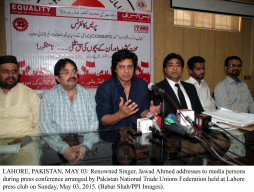

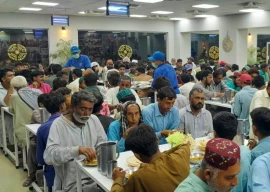
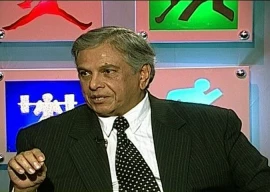

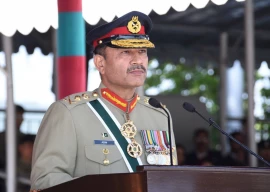
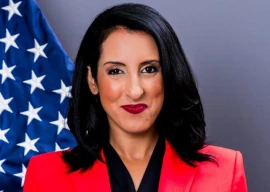











1714024018-0/ModiLara-(1)1714024018-0-270x192.webp)









COMMENTS
Comments are moderated and generally will be posted if they are on-topic and not abusive.
For more information, please see our Comments FAQ